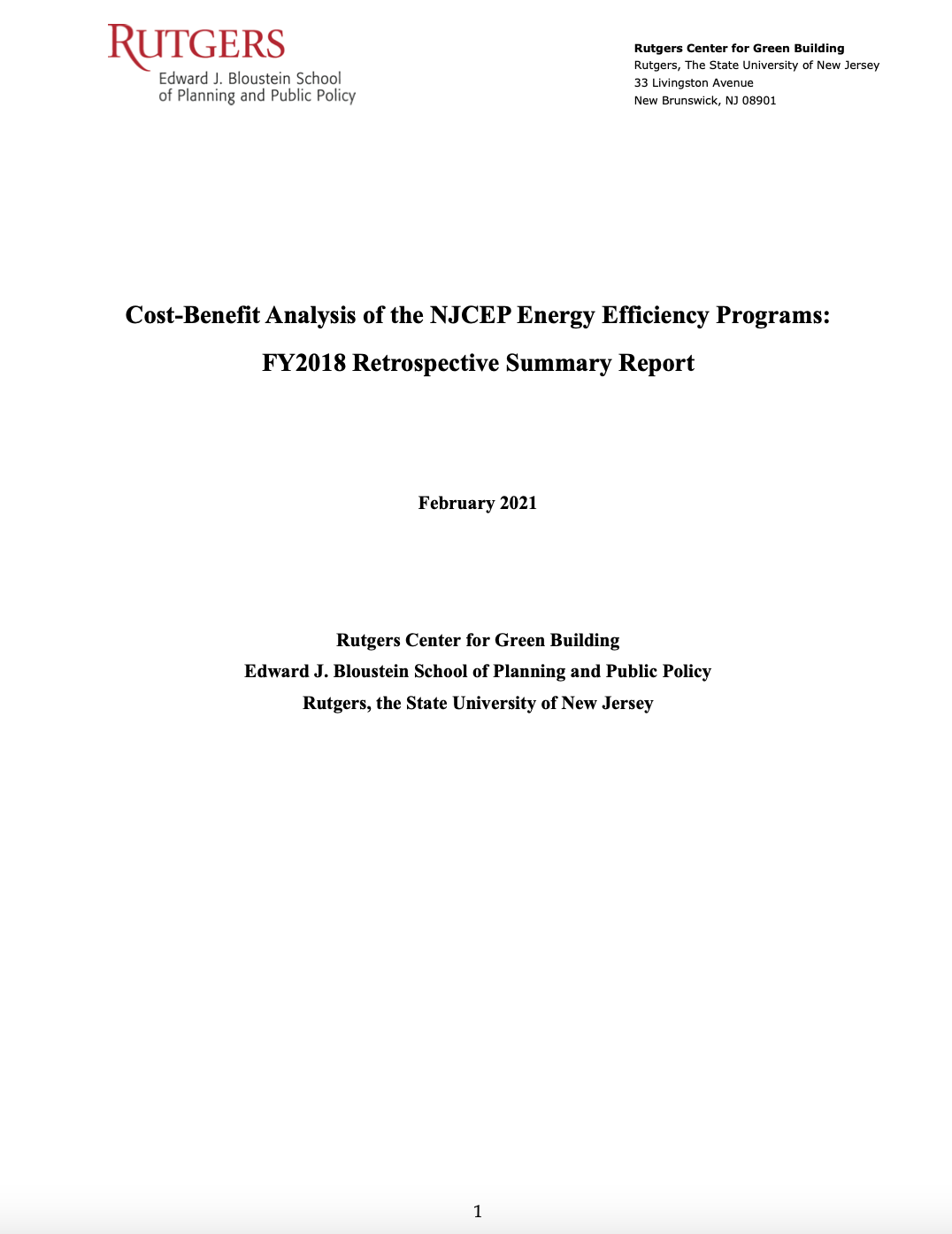The Rutgers Center for Green Building (RCGB) of the Edward J. Bloustein School of Planning and Public Policy is contracted by the New Jersey Board of Public Utilities (NJBPU) to conduct cost-benefit analysis of the FY2018 residential, commercial and industrial New Jersey Clean Energy Program (NJCEP) energy efficiency programs. The NJCEP Energy Efficiency programs available to New Jersey residential, commercial and industrial customers in FY2018 are listed in Table 1.
There are three major changes currently underway that will affect future program evaluation. First, the utilities in New Jersey are taking over administration of a large portion of the Energy Efficiency
programs. As a result of this change, future program evaluation with be conducted/overseen by a Statewide Evaluator. Second, the Board has approved a NJ Cost Test as a primary test, which will be used to assess the programs beginning in FY21. The NJ Cost Test will fulfill the Clean Energy Act’s requirements to consider more extensively economic and environmental factors, ensure universal access to EE, and serve the needs of low-income communities.1 This FY2018 analysis is based on the five standard cost tests defined by the National Standard Practice Manual (NSPM). Finally, the NJ Cost Test Board Order lays out new methodologies and assumptions for the calculation of Avoided Costs. This CBA, and the Avoided Costs presented in Appendix A, do not yet use this updated methodology
